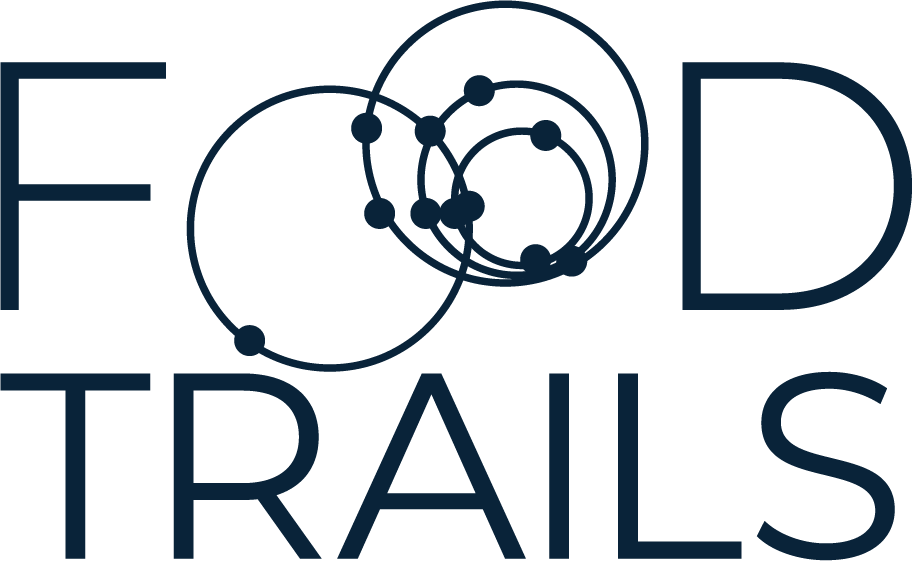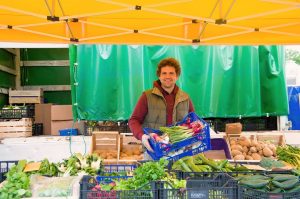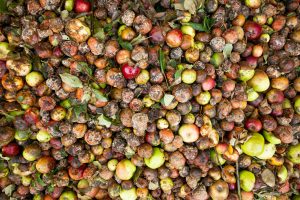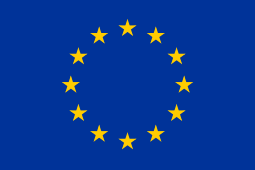The Food Trails’ Open Innovation Workshop promoted by the innovation partner of the Food Trails project, Cariplo Factory, took place on Wednesday, April 26th, online, with the aim of framing the Open Innovation theory and the Design Thinking approach.
The workshop, coordinated by the Innovation Designer Advisor Vincenzo Di Maria, included a theoretical part where Cariplo Factory shared its knowledge and expertise as an Innovation Hub that works with talents, corporates and startups; and a more pragmatic and interactive part where the Food Trails’ partner cities worked in synergy to reflect and share the enabling factors and the experiences that they are encountering while developing Living Labs.
The focus of the workshop was to connect Food Trails’ cities with small and medium-sized enterprises (SMEs) and startups through the Open Innovation framework and the Design Thinking approach, showcasing a range of best practices and case studies from public sector to inspire action.
Why is it necessary to choose Open Innovation and Design Thinking in the public sector?
Open innovation is about involving many stakeholders in the innovation process – from researchers, to entrepreneurs, to users, to governments and civil society – and it’s a win-win strategy because it creates the right ecosystem to increase knowledge, expertise and investments, bringing benefits to all parties.
The Open Innovation approach was originally adopted in the private sector, only in recent years government started using it to provide an additional gateway to innovation, that allows citizens to suggest solutions to problems of public management. The MindLab (Copenhagen) is a perfect example of this practice.
Design thinking is a human-centered approach to innovation that balances 3 aspects:
- Human desirability: understanding what people need and want, what they desire, how they behave and their mental model.
- Technological feasibility: it means going through all the resources, capabilities and knowledge to understand the feasibly of our innovation idea
- Business viability: understanding the economical sustainability of the business
Design thinking is a non-linear, iterative process that teams use to understand users, challenge assumptions, redefine problems and create innovative solutions to prototype and test.
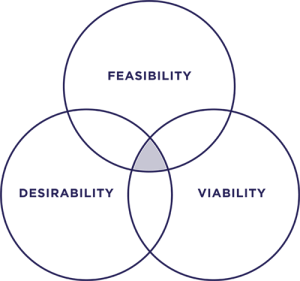
How can we apply Design Thinking principles to the design of urban Food Policies?
From challenging current problem spaces, to driving the creative quest for new solutions and shaping the physical and virtual artefacts of policy implementation, design holds a significant yet largely unexplored potential. Indeed, the combination between choices made by public governments and the use of Open Innovation and Design Thinking in the field of urban Food Policy has been demonstrated through several European case studies.
One of these concerned a project in Ljubljana (Slovenia) that had the objective of shortening the food supply chain, preserve biodiversity and share public awareness on how significant bees are. The project engaged several stakeholders, and it was a great example of cooperation between beekeepers, citizens, private companies and city administration. It also helped to preserve the strong connection to local heritage and culture.
What they did was to set up a city apiary in the Botanical Garden of the University of Ljubljana and then plant in the city bee-friendly plants and flowers, building bees’ gardens and paths. Then they organized guided tourist tours, pedagogical programs for primary school and exhibitions and public campaigns to promote the initiative and spread awareness.
It was a win-win for every single actor that took part in the project. Indeed, the benefits were:
- Better quality of honey and other bee products
- More employment; five beekeepers developed their business, supported by the municipality of Ljubljana
- Citizen engagement; people were asked to plant, on window boxes and balconies, bee-friendly flowers to contribute to the preservation of the bees and their natural environment
- Development of tourism, thanks to the branch of apitourism
- Growth of private projects; a Ljubljana pharmacy developed a self-aid kit to treat bee stings.
This case study shows that Open Innovation and Design Thinking, along with an ecosystem made by different stakeholders (citizens included) can work excellently in the public sector, especially in the field of urban food policy.
Open Innovation and Design Thinking are based on analyzing, making decisions, monitoring and testing them.
It is important not to forget that failure is part of the journey and it’s necessary to understand what is working and what should be changed, in order to take part to the innovation process. As the British pedagogist Ken Robinson said: “If you’re not prepared to be wrong, you’ll never come up with anything original”.
